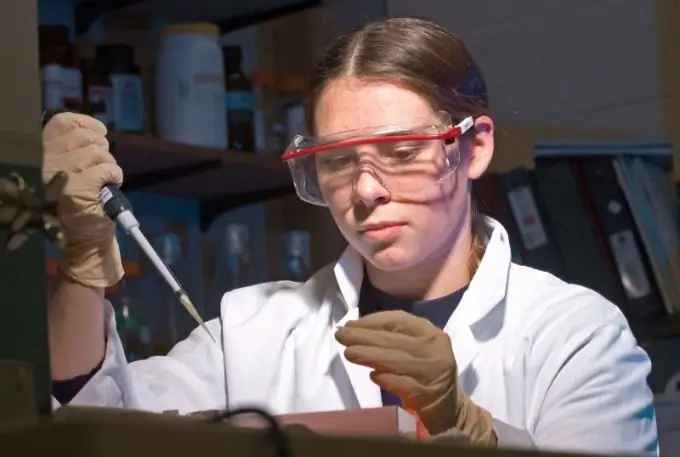- Author Antonio Harrison [email protected].
- Public 2023-12-16 07:44.
- Last modified 2025-01-22 21:44.
For many centuries, women were primarily concerned with the home and children. Girls often received no education at all. Nevertheless, some women still managed to leave their mark on the history of science. And since the time when women were admitted to the university, the number of women scientists and researchers has increased hundreds of times.

Women Scientists of the Ancient World
Even before the formation of Christian civilization, women rarely had access to scientific knowledge. The bulk of learned women lived in Greece, although a strict patriarchy reigned in the country. Hypatia, who lived in the late 4th - early 5th century AD, became the most famous of the female scientists in Greece. She was the daughter of a scientist - Theon of Alexandria, from childhood she was close to philosophical circles. Subsequently, she became a teacher in Alexandria and the author of works in philosophy, mathematics and astronomy. Hypatia also became an inventor. Tradition ascribes to her the creation of a distiller - a device for obtaining chemically pure water. Improving the already existing samples, Hypatia created the first astrolabe, with which it was possible to determine the geographic latitude. It is also believed that a woman scientist invented a hydrometer - a glass tube with which you can measure the density of a liquid.
Among other women inventors, Maria Prophetissa is known, presumably living in the 1st century. AD She was born into a Jewish family and lived in Jerusalem. She studied alchemy, but, like many other specialists in the same discipline, made a great contribution to the creation of modern chemistry. She invented a system for heating liquids on a steam bath, and also created the first prototype of a distillation still.
In the Middle Ages, women scientists were most often not associated with the creation of specific inventions.
The great scientific discoveries of modern women
Women of the modern era even became the pioneers of entire sections of knowledge. For example, Ada Lovelace, daughter of the poet George Byron, became the first programmer in history - she created a program for Babbage's calculating machine.
One of the programming languages is named after Ada Lovelace.
Nettie Stevens became one of the first geneticists. In 1905, she discovered the existence of the X and Y chromosomes, which determine the sex of humans and animals.
Women were also among the inventors-engineers. In 1881, American Josephine Cochrane invented the first mechanical washing machine.
The female scientist also contributed to the invention of the modern computer. Grace Hopper created the first compiler for him, which made it possible to expand the functions of a computer - it became capable not only of computational actions, but also of storing and further processing information. Also, this American researcher laid the principles of modern programming.






